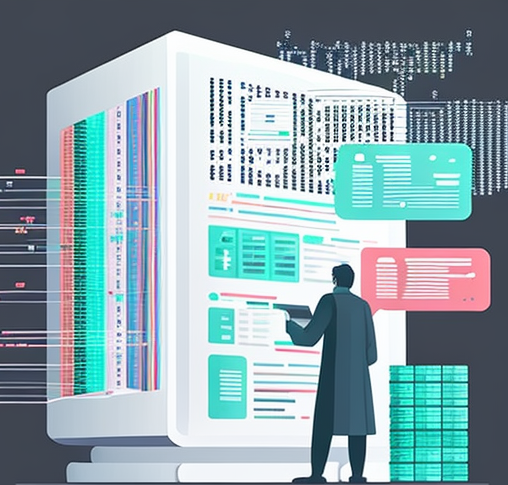Data preparation is a crucial procedure in the data processing pipeline, and Extract Transform Load (ETL) plays a vital role in this process. ETL enables easy access to data from various interfaces, allowing the collection and migration of data from different data structures across multiple platforms. In this article, we will explore twelve Python-based ETL tools that can enhance your data preparation workflow.
1. Apache Airflow
Apache Airflow is a powerful Python-based workflow automation tool, specifically designed to create Directed Acyclic Graphs (DAGs) of tasks. Leveraging Python’s rich feature set, Apache Airflow allows you to schedule tasks using flexible date-time formats and dynamically generate tasks using loops. It serves various purposes, from building machine learning models to transferring and managing data infrastructure. To learn more about Apache Airflow, visit link.
2. Bonobo
Bonobo is a lightweight Python-based ETL framework known for its simplicity and flexibility. It provides essential tools for building data transformation pipelines using plain Python primitives. Bonobo allows executing pipelines in parallel, optimizing the performance of your data processing tasks. Additionally, it employs plugins to display the status of an ETL job during and after execution. Discover more about Bonobo at link.
3. Bubbles
Bubbles is a Python framework specifically designed for data processing and data quality measurement. Its core concepts revolve around abstract data objects, operations, and dynamic operation dispatch. Bubbles aims to provide a clear understanding of the data processing process and ensure the auditability of the processed data. Explore more about Bubbles at link.
4. Etlalchemy
Etlalchemy is an open-source Python-based application built on top of SQLAlchemy. This tool enables ETL functionality between any two SQL databases, offering a straightforward solution to the problem. With just four lines of code, Etlalchemy allows you to migrate data from one SQL database to another. For more information, visit link.
5. Etlpy
Etlpy is a versatile Python library designed to extract fields from various sources, including XML, CSV, JSON, and RSS. It facilitates the transformation of data into ORM models and provides seamless loading of fields into a database. Etlpy offers independence from external sources and DB models, supports configurable connections between source and model fields, and comes with comprehensive unit tests. Learn more about Etlpy at link.
6. Luigi
Luigi is a Python-based package that simplifies the building of complex batch job pipelines. It aims to streamline the process of handling long-running batch processes, such as Hadoop jobs, database interactions, or running machine learning algorithms. Luigi abstracts away the plumbing aspects, allowing you to focus on creating efficient workflows. To dive deeper into Luigi, visit link.
7. mETL
mETL, also known as Mito ETL, is a Python-based tool designed specifically for loading elective data necessary for CEU (Continuing Education Units). It provides support for processing various data types and offers a wide range of transforms, program structures, and mutation steps. Discover more about mETL at link.
8. pygrametl
pygrametl is an open-source Python framework that simplifies the development of ETL processes. It offers commonly used functionality for Extract-Transform-Load tasks and works seamlessly with both CPython and Jython. With pygrametl, you can leverage existing Java code and JDBC drivers in your ETL programs. Learn more about pygrametl at link.
9. petl
petl is a versatile Python package designed for general-purpose ETL tasks. It provides comprehensive functionality for extracting, transforming, and loading tables of data. petl focuses on easy usability and emphasizes transformation capabilities, making it an ideal tool for exploratory analysis. Explore petl further at link.
10. Pandas
Pandas is a widely-used Python library renowned for its efficiency, power, flexibility, and ease of use. It serves as an open-source data analysis and manipulation tool, offering an efficient DataFrame object for analyzing datasets. Pandas provides intelligent data alignment and handles missing data seamlessly, making it an excellent choice for ETL tasks. Discover more about Pandas at link.
11. FastETL
FastETL is a high-performance Python-based ETL tool designed to handle large-scale data processing efficiently. It focuses on speed and optimization, ensuring quick and reliable data transformations. FastETL supports parallel processing and distributed computing, making it suitable for demanding ETL workflows. Learn more about FastETL at link.
12. Dask
Dask is a Python library that provides advanced parallelism and distributed computing capabilities. It offers a familiar DataFrame interface and integrates seamlessly with other Python libraries, including Pandas and NumPy. Dask enables efficient processing of large datasets, making it an excellent choice for ETL tasks requiring distributed computing power. To explore Dask further, visit link.
In conclusion, these twelve Python-based ETL tools offer a wide range of capabilities to streamline your data preparation process. Whether you need workflow automation, lightweight frameworks, data processing, or data analysis, these tools provide powerful solutions to enhance your ETL workflows. Incorporate these tools into your data pipeline and experience increased efficiency and productivity.

